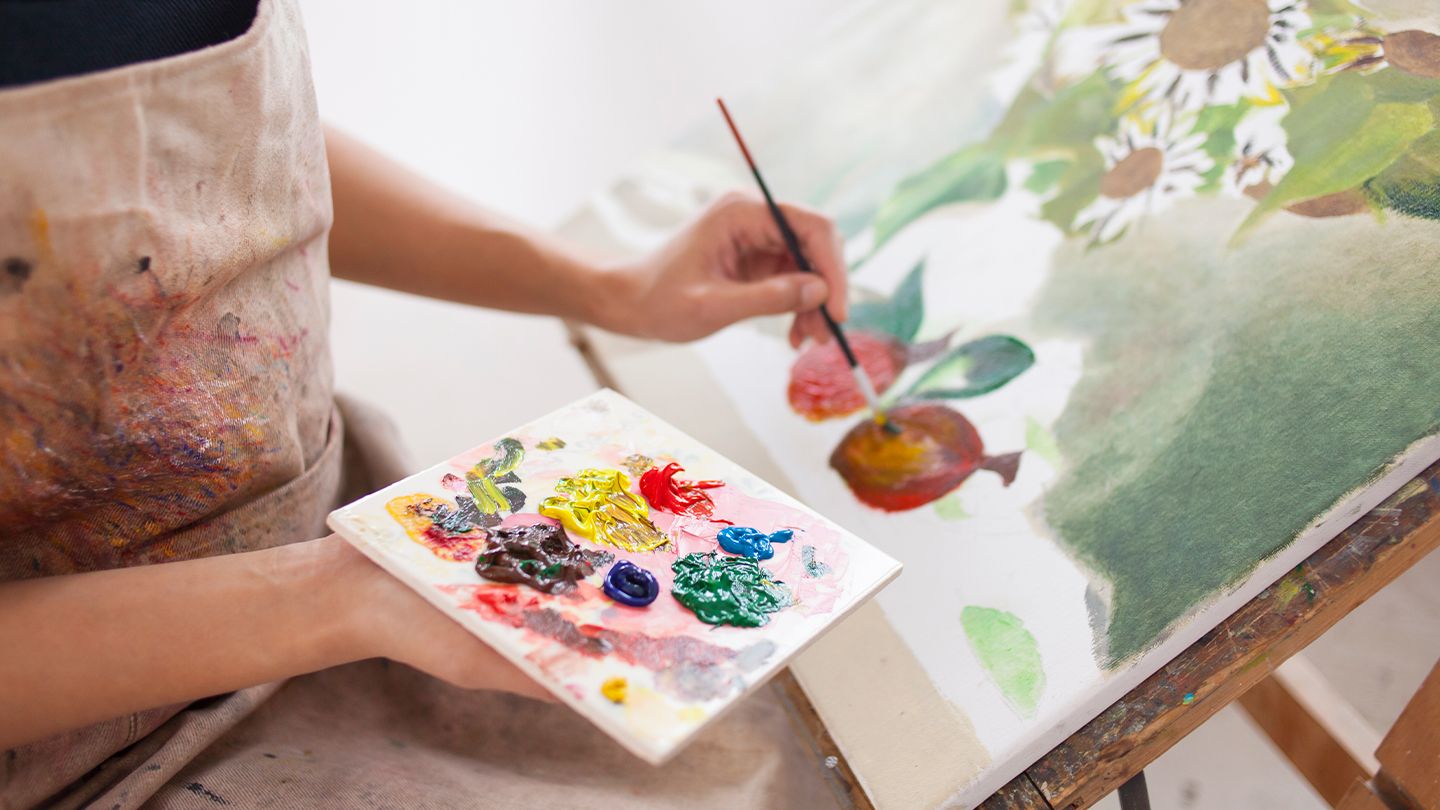When you have rheumatoid arthritis (RA), you have a lot to juggle, including dealing with symptoms like joint pain, stiffness, and fatigue — not to mention the usual stresses of life, which can be compounded by living with a chronic condition. That’s why most healthcare providers emphasize the importance of self-care to help you manage RA.
In theory, self-care should help you feel better, but there may be times when it can also feel like an obligation added to your already full plate.
Here’s what to know about how to boost your emotional, mental, and physical health when living with RA, and what you can do to update your self-care routine if it starts to feel less helpful and more like a chore.
The Basics of Rheumatoid Arthritis Self-Care
Self-care strategies can make a big difference not only in your overall health but also in slowing the progression of RA, according to the Arthritis Foundation.
“Self-care is critical for people who have RA,” adds Orrin Troum, MD, a rheumatologist at Providence Saint John’s Health Center in Santa Monica, California.
For starters, that includes following healthy lifestyle habits for RA, including:
Even though self-care is good for you, it’s also possible to start feeling burdened by it. Consider revamping your self-care routine with these tips:
1. Try a New Low-Impact Activity
“Exercise is crucial to make sure the muscles stay strong and healthy, as people with inflammatory arthritis may want to be more sedentary because their joints hurt,” Dr. Troum says. Low-impact exercises such as walking, swimming, and biking can help you stay active without making your joints feel worse.
If there’s a type of exercise or class you haven’t tried and are curious about, give it a go. Several years ago, Kathy Giegrich found herself struggling with her weight. Her doctor told her that in addition to RA, she had high blood pressure and was borderline diabetic.
Giegrich knew she couldn’t do high-impact exercise and decided to join the newly opened Pure Barre studio in her hometown of Bridgewater, New Jersey. “I didn’t want to go into a gym atmosphere, where I knew that I was doomed,” she says. “[Barre] is not high impact; it’s small movements. It was something I knew that I could learn to do,” Giegrich says.
Giegrich fell in love with the barre class and started going five days a week. She hasn’t needed a cortisone shot for RA in a few years — and she’s lost 70 pounds. She also credits the sense of camaraderie at the studio with motivating her to stick with it. “There is a community of women where you go into one of these classes, and you know that everybody is cheering for you.”
2. Experiment With Different Styles of Meditation
If you haven’t given meditation a try, now’s the time. “Mindfulness meditation can be extraordinarily helpful to people with RA,” says Troum.
Many styles of meditation exist, so if one doesn’t resonate with you, try a different approach. Other styles include:
- Guided imagery, or the practice of visualizing positive, peaceful settings
- Progressive muscle relaxation, or the practice of tensing and releasing muscle groups in the body
- Mantra meditation, or the practice of repeating phrases with intention — for example, to help promote focus
- Loving-kindness meditation, or the use of mantras to send positive vibes to others
- Moving meditation, or the practice of focusing on intentional movements (as opposed to meditating while sitting still)
Using a smartphone meditation app can be an easy way to get started with any style.
3. Do Something Fun That’s Just for You
Emotional stress can be common for those living with RA. Think about what would really help you feel refreshed, recharged, and less anxious, and then put a plan into action. That might include ideas like:
- Taking a mental health day from work or school
- Unplugging from social media
- Visiting a new park
- Booking a night in a nice hotel
- Visiting a sauna
- Taking a painting class
4. Explore Different Types of RA Support
Living with RA can be frustrating, especially when other people around you aren’t living with a chronic health condition. You may find it helpful to reach out beyond your family and friends, and locate a support group or network of people who truly understand what you’re going through — because they’re going through the same thing.
Connecting with others can help you feel less isolated and provide a welcoming space where you can be honest and work through potentially negative emotions that might otherwise take a toll on your mental health.
Ask your rheumatologist about in-person support groups in your area. If you prefer virtual support, check out the Arthritis Foundation’s Live Yes! online community.
5. Respect Your Body: Work With It, Not Against It
While you may be tempted to push yourself physically to keep up with others, Giegrich says this strategy can backfire when you have RA. “You have to listen to your body and say, ‘Maybe today I’m not going to conquer the world, but I am going to go for a two-mile walk and then do some yoga just to stretch everything out,’” she says.
Sometimes the best thing you can do is rest — which also goes for self-care. If you’re feeling burned out with regard to your self-care routine, taking a break may be just what you need in order to return to it with a new outlook.
6. Check in With Your Rheumatologist
Self-care may take the form of recognizing that what you’re feeling — physically or emotionally — deserves compassion and attention, rather than downplaying it or suffering in silence.
If you’re struggling with RA symptoms and management, it’s important to tell your rheumatologist. They can help you come up with strategies to help you feel better. “Being able to discuss your feelings, being open about them, and having a good relationship with your healthcare provider is really critical,” Troum says.
The Takeaway
- Self-care is an important part of managing rheumatoid arthritis, and it includes maintaining a healthy lifestyle through diet, sleep, and stress management.
- If self-care starts to feel like a chore, try injecting some novelty. When it comes to exercise, explore new low-impact activities, such as swimming or barre classes, to keep your routine fresh and enjoyable.
- Engaging in mindfulness meditation or other relaxation techniques can allow individuals with RA to manage stress effectively, promoting both mental and physical well-being.
- Prioritize support by connecting with others who share the RA experience, either through local support groups or online communities, to combat isolation and find understanding spaces.
Read the full article here




